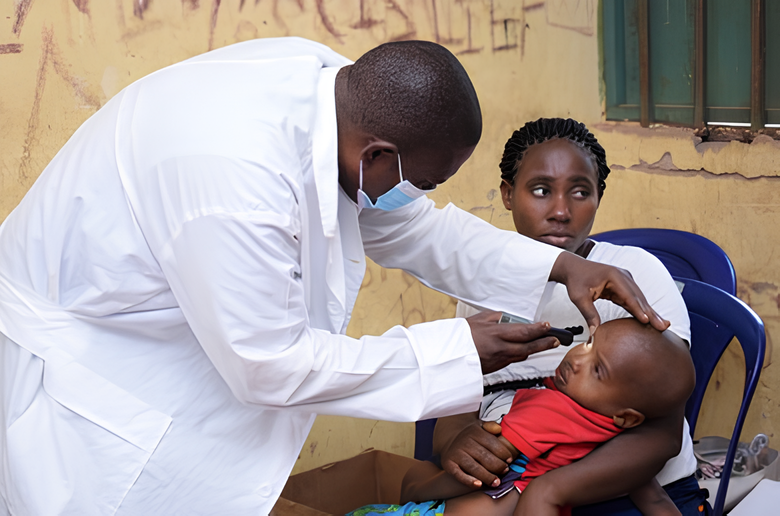PURPOSE of THE NNAST


About us
What is NNAST ?
- NNAST ( Nigerian National Antimicrobial Stewardship Taskforce) comprises leading experts in antimicrobial stewardship from diverse medical fields within Nigeria and internationally, and is uniquely positioned to help with the coordination of the nation's efforts against this critical public health threat.
- The task force’s mandate is to help the Nigerian Center for Disease Control and Prevention ( NCDC) accelerate and synergize the impactful work already underway by governmental and non-governmental organizations, researchers, healthcare professionals (including doctors, pharmacists, nurses, and other medical personnel in both the public and private sectors), pharmaceutical companies, universities, and educational institutions.
- By helping to identify gaps, fostering collaboration to avoid redundancy, and facilitating effective communication, the task force aims to help to streamline existing AMR initiatives, contribute to robust policy development alongside the NCDC, the One Health AMR Coordinating Committee (AMRCC) and the One Health AMR Technical working group ( TWG), and ultimately strengthen Nigeria's response to this escalating challenge.
- The NNAST will leverage its collective expertise to try to provide strategic advice, connect stakeholders, secure crucial funding, facilitate access to new technologies, support the development of infectious disease programs and curricula in universities and medical schools, and generally serve as a vital link, coordinating and amplifying the considerable efforts already being made to combat AMR across Nigeria.
The fight against antimicrobial resistance (AMR) is a critical battle for Nigeria’s public health. The unchecked rise of drug-resistant infections threatens to undermine our progress in healthcare, jeopardizing the treatment of common infections and significantly impacting mortality rates. To effectively combat this threat, a collaborative and coordinated national effort is paramount.
This Taskforce marks a significant step towards achieving this crucial goal and signifies a renewed commitment by Nigerian Government to implementing the Nigerian Action Plan on Antimicrobial Resistance 2.0 (NAP 2.0), launched in October 2024 by the NCDC and Honourable coordinating Minister of Health and social welfare Dr. Muhammed Pate.
The launch of NAP 2.0 was necessitated by the alarming escalation of AMR across the country, highlighting the urgent need for a comprehensive and strengthened national strategy. The previous action plan NAP 1.0 launched in 2017 had made important strides, but the evolving nature of AMR necessitated an updated, robust, and more targeted approach.
NAP 2.0 builds upon the foundations laid by its predecessor, incorporating lessons learned and adapting to the latest scientific evidence and global best practices. Key features of NAP 2.0 include: strengthened surveillance and detection systems, improved infection prevention and control measures, enhanced stewardship programs in healthcare settings, public awareness campaigns, improved access to diagnostics, improved capacity building, promoting research and development and strengthening healthcare systems
The role of NNAST is pivotal in realizing the ambitions of NAP 2.0 and NCDC under the One Health plan and aims to achieve it by;
Supporting the Nigeria Centre for Disease Control (NCDC)
Providing critical support to the NCDC, the lead agency in the fight against AMR, to help achieve the targets outlined in NAP 2.0. This includes identifying gaps in funding, collating information on amr in Nigeria, providing advice and technical assistance with setting up National Antimicrobial Stewardship standards, integrating infectious disease into educational systems among others.
2. Facilitating collaborative efforts: Bridging the gap between various government agencies, healthcare providers, research institutions, civil society organizations, educational institutions and international partners to ensure a unified and effective response.
3. Strengthening communication: Improving information sharing and coordination among stakeholders, enhancing public awareness about AMR, and promoting evidence-based best practices.
NNAST represents a collective commitment to a healthier Nigeria. By working together, we can effectively combat AMR and safeguard the future of healthcare for all Nigerians. We are confident that through collaboration, dedication, and strategic action, we can make significant strides toward achieving the goals outlined in NAP 2.0. We look forward to a productive partnership in this critical endeavor

NNAST is closely affiliated with the Nigerian Center for Disease Control and Prevention (NCDC)
One of NNAST’s missions is to support NCDC in the battle against antimicrobial resistance by increasing the use of antimicrobial stewardship.
Nigeria’s National Action Plan NAP 2.0 is based on the World Health Organization’s (WHO) recommendations to use national core elements as indicators of the country’s capacity to implement national programs on Antimicrobial Stewardship (AMS). These core elements are:
1. Establishing a National Plan and Strategies
2. Establishing National regulations and guidelines for awareness
3. Establishing Training and education programs
4. Supporting technologies and data development
Antimicrobial Stewardship is prioritized in the NAP 2.0 governance manual, and a Technical Working Group (TWG) has been formed to guide its actualization. Collaboration with external groups, government, and non-governmental agencies as well as educational and research groups is encouraged to maximize the efforts to combat AMR.
NNAST has an advisory and technical role in antimicrobial stewardship in humans and is affiliated with the AMS Pillar of the National AMR Technical Working Group. NNAST has its secretariat within the NCDC.


